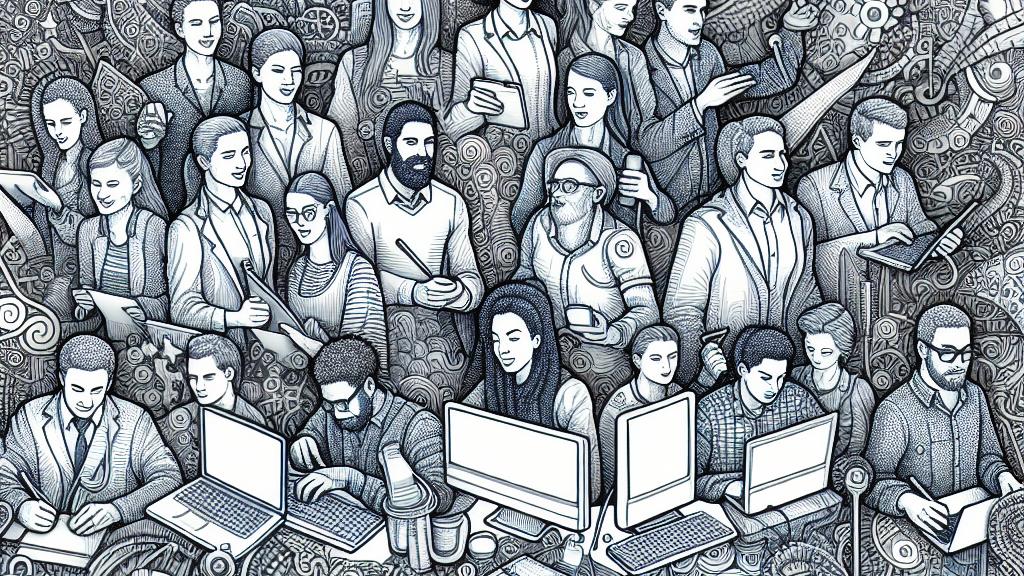Harnessing the Gen Z Wave: Transforming Leadership for a New Era
Overview
- Discover Gen Z's unique values and expectations as they enter the workforce.
- Learn how to implement adaptive leadership practices centered on purpose, flexibility, and continuous development.
- Cultivate an inclusive culture that fosters collaboration, innovation, and employee well-being.

The Gen Z Perspective
In Thailand, as well as globally, Generation Z—born from 1997 to 2012—is reshaping workplace dynamics in profound ways. This generation seeks meaningful work that goes beyond financial compensation; they are drawn to opportunities that align with their values of social justice, environmental responsibility, and community impact. Digital natives by nature, Gen Z employees thrive in tech-centric environments and are adept at leveraging tools for efficiency and creativity. Understanding these characteristics allows leaders to build workplaces that not only meet Gen Z's expectations but also benefit from their innovative perspectives.
Evolving Leadership Practices
To effectively engage Gen Z talent, leaders must pivot from traditional management styles to more dynamic and inclusive practices. This starts with communicating a clear organizational purpose and showing how each role contributes to larger societal goals. Continuous learning opportunities tailored to individual career trajectories are essential, as Gen Z values personal growth and skill enhancement. Additionally, creating a culture where feedback is regular and valued strengthens relationships and encourages collaboration. Adopting flexible work arrangements further aligns with Gen Z's need for work-life balance, making the workplace more attractive.
The Future of Leadership
Adapting leadership practices is crucial not only for attracting but also for retaining Gen Z talent in an increasingly competitive job market. Research indicates that 60% of Gen Z employees would consider leaving for positions that offer better opportunities for growth and align with their personal values. Organizations must embrace new technologies and foster an inclusive culture that promotes diversity and innovation. Business leaders who prioritize the needs and aspirations of Gen Z will not only enhance employee engagement but also position their organizations for sustainable success in the evolving marketplace.
The Role of Technology and Innovation
The integration of technology is more critical than ever in workplaces inhabited by Gen Z. This generation comes equipped with high-tech skills and anticipates that their employers will embrace cutting-edge tools to enhance productivity and creativity. Organizations must invest in digital infrastructures that empower employees to solve problems creatively. By fostering an environment where technological innovation is encouraged, businesses not only position themselves for growth but also enhance their employees' problem-solving capabilities, creating a workforce that is agile and adaptable.
Creating a Supportive Work Environment
For Gen Z, mental health and well-being are top priorities, and a supportive work environment is essential for their retention. Leaders should actively promote mental health initiatives and make resources available to assist employees in managing workplace stress. By fostering a culture of openness where employees can discuss mental health challenges without stigma, organizations can cultivate resilience and engagement among their teams. These practices not only contribute to employee satisfaction but also drive better performance outcomes, reducing turnover and supporting organizational stability.
Fostering Diversity and Inclusion
Diversity and inclusion are foundational aspects that resonate strongly with Gen Z. Employees from this generation expect their workplaces to not only embrace diversity but actively promote it. Companies that cultivate an inclusive culture—and implement policies that celebrate differences—will attract Gen Z talent who want to make a meaningful impact. This can lead to enhanced creativity and collaboration across teams, driving better results and fostering a sense of belonging. Ultimately, a commitment to diversity and inclusion is not just a moral imperative; it's also a strategic advantage in today's global economy.

Loading...